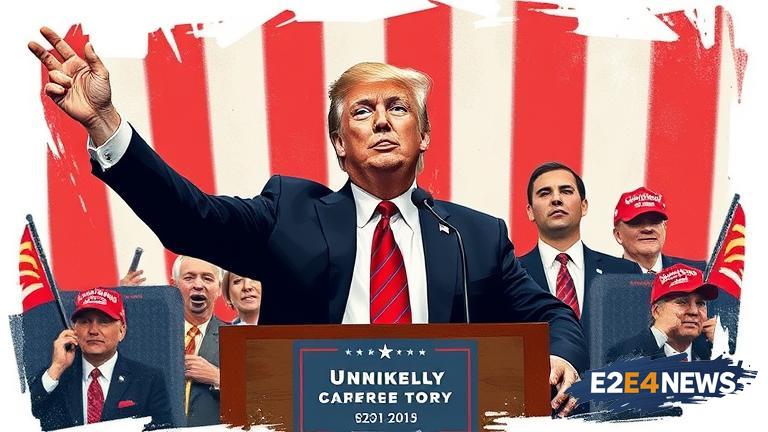The 2016 presidential election will be remembered as one of the most unpredictable and shocking in American history. Donald Trump, a businessman and reality TV star, emerged as the Republican nominee and went on to defeat Hillary Clinton, a seasoned politician with a long history of public service. Trump’s campaign was marked by controversy and scandal, yet he managed to tap into the frustrations and anxieties of a significant portion of the American electorate. His message of economic nationalism and anti-establishment populism resonated with many voters who felt disenfranchised by the political system. Trump’s ability to connect with working-class Americans and his willingness to challenge the status quo helped him build a loyal base of supporters. Despite being written off by many pundits and polls, Trump’s campaign gained momentum in the final weeks of the election, and he ultimately won the presidency by a narrow margin in the Electoral College. The outcome of the election was met with widespread shock and surprise, with many wondering how Trump had managed to pull off such an unlikely victory. In the aftermath of the election, there was much speculation about the factors that contributed to Trump’s success. Some pointed to his effective use of social media and his ability to dominate the news cycle. Others argued that his populist message and anti-establishment credentials had resonated with voters who were disillusioned with the political system. Trump’s campaign also benefited from a strong turnout among rural voters and a lack of enthusiasm among some Democratic voters. The election highlighted deep divisions within the American electorate, with many voters expressing frustration with the political system and a desire for change. Trump’s victory was also seen as a repudiation of the political establishment and a rejection of the traditional Republican and Democratic parties. In the months and years that followed, Trump’s presidency was marked by controversy and polarization, with many of his policies and actions sparking heated debate and opposition. Despite the challenges he faced, Trump remained a highly divisive figure, with a loyal base of supporters and a strong presence on social media. The legacy of Trump’s presidency continues to be felt, with many arguing that it marked a significant turning point in American politics. The election also highlighted the importance of understanding and addressing the concerns and anxieties of working-class Americans, who felt left behind by the economic recovery and disillusioned with the political system. Trump’s campaign showed that a candidate who is willing to challenge the status quo and speak to the frustrations of ordinary Americans can be successful, even in the face of overwhelming opposition from the political establishment. The outcome of the election also underscored the need for greater empathy and understanding between different segments of the American electorate, who often have fundamentally different views of the country and its future. In the end, Trump’s victory was a testament to the power of populism and the importance of understanding the concerns and anxieties of ordinary Americans. The election will be remembered as a significant moment in American history, one that highlighted the deep divisions within the country and the need for greater understanding and empathy between different segments of the electorate. As the country continues to grapple with the challenges of the 21st century, it is clear that the legacy of Trump’s presidency will be felt for years to come. The election also raised important questions about the role of social media in politics and the impact of fake news and disinformation on the democratic process. Trump’s use of Twitter and other social media platforms helped him build a loyal base of supporters and stay in the news, but it also raised concerns about the spread of misinformation and the erosion of trust in institutions. The election highlighted the need for greater critical thinking and media literacy, as well as a more nuanced understanding of the complex factors that shape public opinion and political behavior. Ultimately, the story of Trump’s unlikely victory is a complex and multifaceted one, reflecting the deep divisions and anxieties of the American electorate. It is a reminder that politics is often unpredictable and that the outcome of elections can be shaped by a wide range of factors, from economic conditions and demographic trends to social media and cultural attitudes.
